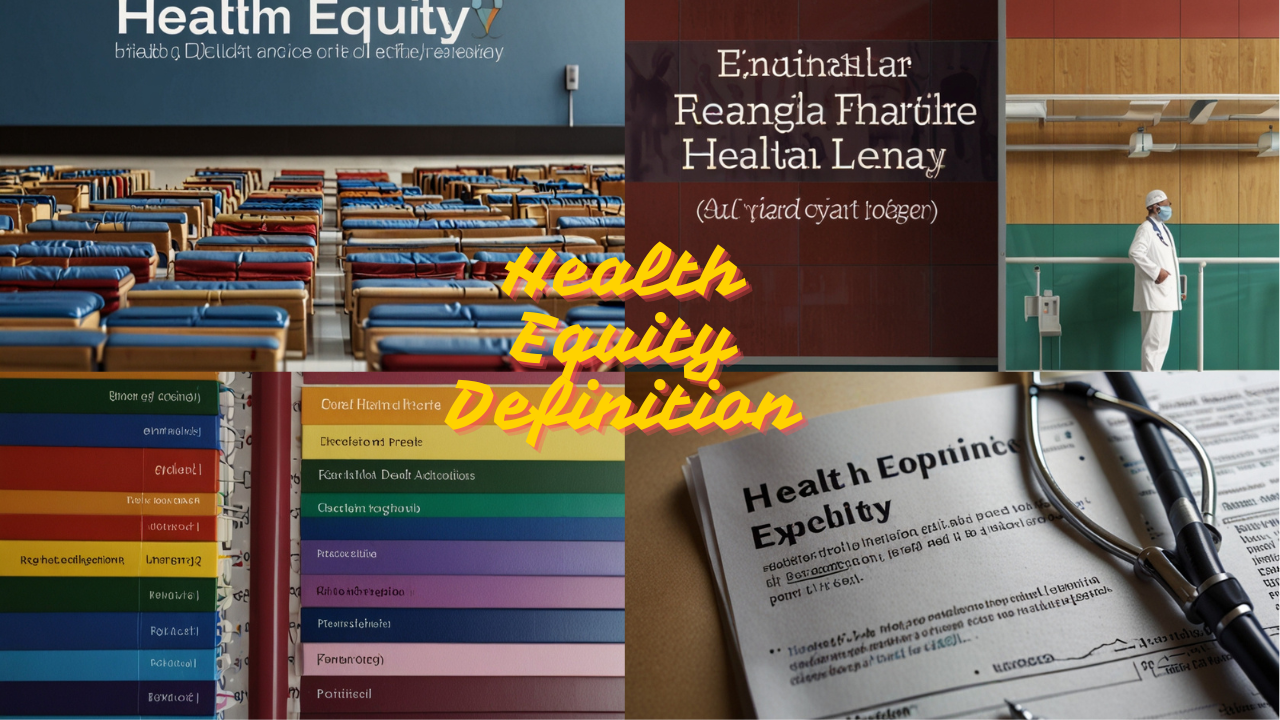Table of Contents
ToggleHealth Equity Definition
Introduction
Health equity is a concept that encompasses fairness and justice in healthcare access, outcomes, and opportunities. In this article, we’ll delve into the definition of health equity, its importance, and ways to advance equitable healthcare practices.
What is Healthcare Equity?
The absence of preventable or unjust disparities in health outcomes and healthcare service access across various communities is known as health equality. It emphasizes the need of addressing socioeconomic factors of health like income, education, environment, and accessibility to healthcare services in order to ensure that Everybody can achieve their best possible state of health.
Key Components of Health Equity
- Fairness: Ensuring that everyone has a fair opportunity to attain their full health potential.
- Example: Providing healthcare services based on need rather than ability to pay.
- Elimination of Health Disparities: Addressing differences in health outcomes between various population groups.
- Example: Implementing targeted interventions to reduce disparities in chronic disease prevalence among minorities.
- Social Justice: Recognizing and rectifying historical and social injustices that contribute to health inequities.
- Example: Advocating for policies that promote equitable distribution of resources and opportunities.
Why Health Equity Matters
Achieving health equity is not just a moral imperative but also has significant societal and economic benefits. Here are some reasons why health equity matters:
- Improved Public Health: Addressing health disparities leads to better overall population health outcomes.
- Enhanced Productivity: Healthy individuals are more productive, contributing positively to the economy.
- Reduced Healthcare Costs: Preventing diseases and addressing health inequities can lower healthcare spending in the long run.
- Social Cohesion: Promoting fairness in healthcare fosters social cohesion and trust in healthcare systems.
Advancing Health Equity

Advancing health equity requires a multifaceted approach involving policymakers, healthcare providers, communities, and individuals. Here are strategies to promote health equity:
1. Addressing Social Determinants of Health
- Education: Improving educational opportunities and literacy can positively impact health outcomes.
- Income Security: Ensuring fair wages and reducing income inequality can improve access to healthcare.
- Safe Environments: Creating healthy living environments free from environmental hazards promotes overall well-being.
2. Culturally Competent Care
- Cultural Sensitivity: It should be the training of healthcare professionals to recognize and appreciate many cultural customs and beliefs.
- Language Access: Providing language interpretation services ensures effective communication and access to care for diverse populations.
3. Health Policy Reform
- Equity-Oriented Policies: Implementing policies that prioritize health equity and address systemic barriers.
- Community Engagement: Involving communities in decision-making processes to identify and address local health needs
Frequently Asked Questions
- What distinguishes health equality from health justice?
- While health equality stresses equitable access to healthcare services regardless of need, health equity focuses on correcting inequalities and guaranteeing justice.
- How can individuals contribute to advancing health equity?
- Individuals can advocate for policies that promote equity, support community initiatives, and educate themselves and others about health disparities.
- What role do social determinants of health play in health equity?
- Social determinants such as income, education, and environment significantly influence health outcomes and access to healthcare, highlighting the need to address these factors to achieve health equity.







